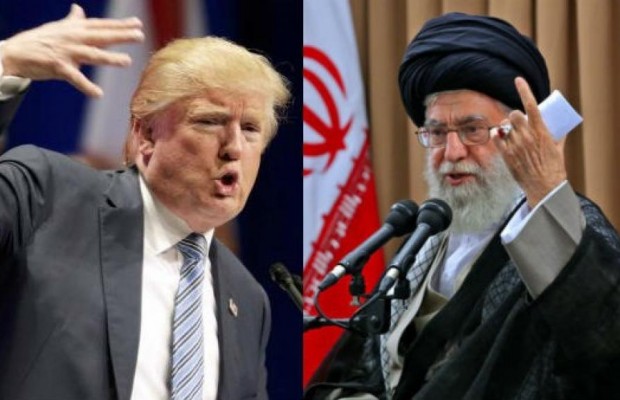Analysis/Israel Fears Trump Might Sit Down With the Iranians – and Be Outmaneuvered
انشيل فايفر/هآرتس: مخاوف إسرائيلية من تراجعات في المواقف في حال قام ترامب بمفاوضات مع الإيرانيين
Anshel Pfeffer/Haretz/August 26/2019
Intelligence community doesn’t trust that Trump won’t sign an agreement that will leave everyone worse off, but are even less sure that Khamenei will play along.
Iranian Foreign Minister Mohammad Javad Zarif’s surprise arrival on Sunday to the G-7 summit in Biarritz, France, played into the fears of some analysts in the Israeli intelligence community of a sudden move by U.S. President Donald Trump to resurrect the Iran deal. Zarif did not end up meeting with Trump – only with the G-7 host, French President Emmanuel Macron. But Trump’s subsequent remarks that he had been in on the secret invitation to Zarif, that he “respects” his arrival, and that he was not interested in regime change but rather a “strong Iran” hardly helped to allay concerns in Israel.
Trump did withdraw from the nuclear agreement last May, and his administration has imposed new sanctions on Iran since then. But he also went from threatening North Korea with nuclear annihilation to hobnobbing with its leader. And after Macron suggested at the summit that the United States and Iran should meet in the coming weeks, Trump said the timeline sounded realistic. The U.S. president told reporters that there was “a really good chance” the meeting would happen.
The fears in Israel, which for now are only being expressed in completely off-the-record conversations, are that Trump, eager to make his mark on world affairs and prove he can achieve a better deal than his predecessor, will find himself in a room with negotiators much wilier and more knowledgeable on the issues than he is. Convinced that he is the grand master of the art of the deal, Trump could swiftly come to an agreement with the Iranians that may sound preferable to him, but in reality will be much worse.
An additional fear is that once Trump embarks on a new deal with the Iranians, Israel will have no room for pushback, since Prime Minister Benjamin Netanyahu and his ministers have repeatedly praised him as being the most pro-Israel president ever. They have boxed themselves in. At least when President Barack Obama’s team was negotiating their Iran deal, Israel could exert pressure in every way possible, if not attempting to prevent the deal, then at least to influence its terms.
Contrary to what some Obama administration officials have said in the past, the leaders of Israel’s defense community were not enamored with the Iran deal. That was a gross exaggeration. They were far from ecstatic about it. But unlike Netanyahu, who spoke of it in apocalyptic terms, they also saw advantages in an arms-control agreement that gave Israel a ten-year period during which it could focus on other threats besides the Iranian nuclear one.
Another advantage was that they had relayed many of their concerns to the American and other Western negotiating teams in real time, and the deal contained emphases they had suggested, ensuring that Iran would be in compliance. But Trump, they fear now, could agree to a deal with the Iranians without consulting his own security people, as he did in his first meeting with North Korean dictator Kim Jong Un. In such a situation, Trump’s Iran deal could be much worse for Israel than the Obama one was.
However, there is also a different school of thought in the Israeli security establishment. These people are pretty certain that nothing will come out of these “proximity talks” between Washington and Tehran.
This view isn’t based on a more charitable view of Trump, who continues to baffle analysts with his erratic foreign policy. Their skepticism regarding Trump achieving a new nuclear deal is that of seasoned Israeli Iran-watchers, whose assessment is that the supreme leader Ayatollah Ali Khamenei will not allow his representatives to sign such an agreement.
Khamenei, so the thinking goes, allowed Zarif and Iranian President Hassan Rohani to sign the Iran deal against his ideology and instincts, in hopes of gaining major economic benefits. Now that those have failed to materialize and the U.S. has unilaterally withdrawn from the agreement, he has reverted to his base within the Iranian establishment, which was against the deal to begin with and saw it as a national humiliation. Khamenei will not permit another deal with the U.S.






















